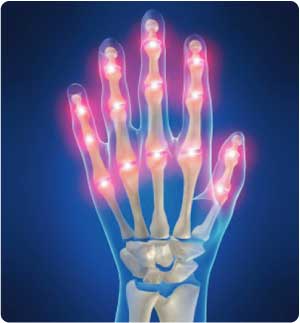Article
Underwater Inferential Current Therapy Improves Hand Psoriatic Arthritis
Author(s):
Underwater inferential current therapy significantly improves overall hand function in patients whose psoriatic arthritis affects their hands, according to a study published in the April issue of International Journal of Physiotherapy and Research.

Underwater inferential current (IFC) therapy significantly improves overall hand function in patients whose psoriatic arthritis (PsA) affects their hands, according to a study published in the April issue of International Journal of Physiotherapy and Research.
Ahmed Fathy Samhan, PhD, PT, of Cairo University in Egypt studied 30 PsA patients aged 45 years on average who were subjected to either IFC or placebo therapies.
Patients who underwent IFC therapy were instructed to place their hands on 4 underwater electrodes that emitted a frequency of 100 Hz. They were subjected to this 20-minute procedure 3 times a week for a month, for a total of 12 sessions. The placebo patients underwent the same process, but the electrodes did not emit a current.
To determine the effectiveness of IFC therapy, Samhan documented pre- and post-therapy pain levels and grip force in patients’ dominant hands. Additionally, the investigator used patients’ Disability of Arm, Shoulder, and Hand (DASH) questionnaire scores to assess hand and wrist disorder.
Samhan compared the relationship between patients’ pain levels and DASH scores in addition to detecting a comparison between pain levels and grip force.
Compared to pre-treatment, the investigators discovered significantly improved post-treatment scores and hand function in patients who were subjected to IFC therapy in comparison to the control group.
“[Patients] showed significant improvement in the 3 outcomes in study group (P < 0.005) with non-significant improvement in control group (P > 0.005),” Samhan wrote. “Visual analogue scale had a strong positive correlation (P < 0.001) with the disability score and a strong negative correlation (P < 0.001) with the grip force.”
The investigator recommended IFC as a method of improving functionality in hand PsA patients.
“The present study shows that using underwater IFC therapy in hands of PSA patient was effective for the improvement of hand function and QOL,” Samhan concluded.





